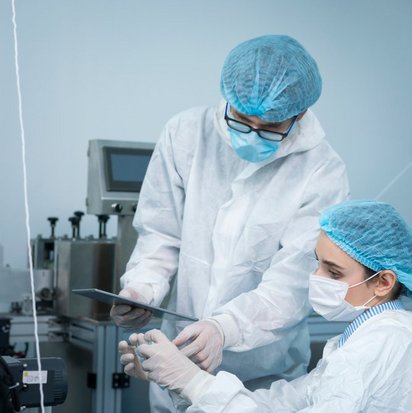MDSAP
TUV USA Inc. (a member of the TÜV NORD Group) was one of the first certification bodies to be registered by the relevant regulatory authorities and is therefore entitled to perform MDSAP audits.

TUV USA Inc. (a member of the TÜV NORD Group) was one of the first certification bodies to be registered by the relevant regulatory authorities and is therefore entitled to perform MDSAP audits.

Medical device manufacturer (MDM) who wished to sell, distribute or license their products in Australia, Brazil, Canada, Japan, and USA had to demonstrate fulfilment of the national regulatory requirements of each respective country within different approval processes. This naturally involved a great deal of time and expense. IMDRF (International Medical Devices Regulators Forum) developed and recognizes a unified program – the MDSAP (Medical Device Single Audit Program) – which covers different regulatory requirements. Conformity with the relevant requirements of the regulatory authorities can now be demonstrated by manufacturers within the framework of one single audit.
Objectives of the MDSAP
The objective of the MDSAP is to achieve a common and global approach to auditing and monitoring the manufacturing of medical devices by taking different regulatory requirements into consideration. The national rules were retained and medical device manufacturers were required to demonstrate compliance to the relevant requirements of the regulatory authorities participating in MDSAP and must have their quality management system monitored by a third party MDSAP recognized auditing organization (AO).
Recognition of the MDSAP within the regulatory frameworks
Australia TGA uses the MDSAP audit reports and certificates for making regulatory decisions (granting Marketing Authorization or postponing on-site TGA audit), primarily for those medical device manufacturers who do not hold EU Certification. However, certain conformity assessments must be presented within the framework of the market approval.
Brazil ANVISA accepts MDSAP audit reports for Brazilian GMP Certification purposes, provided the Brazilian specific requirements are covered. Brazil requires a GMP Certificate from ANVISA for registration of medical devices of Classes III and IV. The GMP Certificate can be issued based on an ANVISA inspection or the MDSAP audit report issued by a recognized MDSAP auditing organization.
Health Canada recognizes and accepts the MDSAP certificate to grant product licenses to sell products in Canada. MDSAP certification is required to obtain a project licence with Health Canada.
Japan PMDA and MHLW accepts the MDSAP audit report and when a MDSAP audit report is submitted, then PMDA may perform off-site inspection instead of on-site inspection or reduce documents for off-site inspection.
US FDA accepts MDSAP audit reports as a substitute for routine Agency inspections. However, MDM whose activities are related to the Electronic Product Radiation Control (EPRC) provisions of the act was still subjected to FDA and are not included in the MDSAP program.
International growth of the program
More and more regulatory authorities and international medical device manufacturers have started to accept and join the MDSAP program. Since the inception of the MDSAP program, regulatory authorities who are interested in the MDSAP program must join the program as official observers or as affiliate members. More information could be obtained from FDA website.
These five RAs form the MDSAP Regulatory Authority Council (RAC), the decision-making body of the MDSAP. The RAC provides direction, oversight, and resources to support the MDSAP development, implementation, maintenance, and expansion.